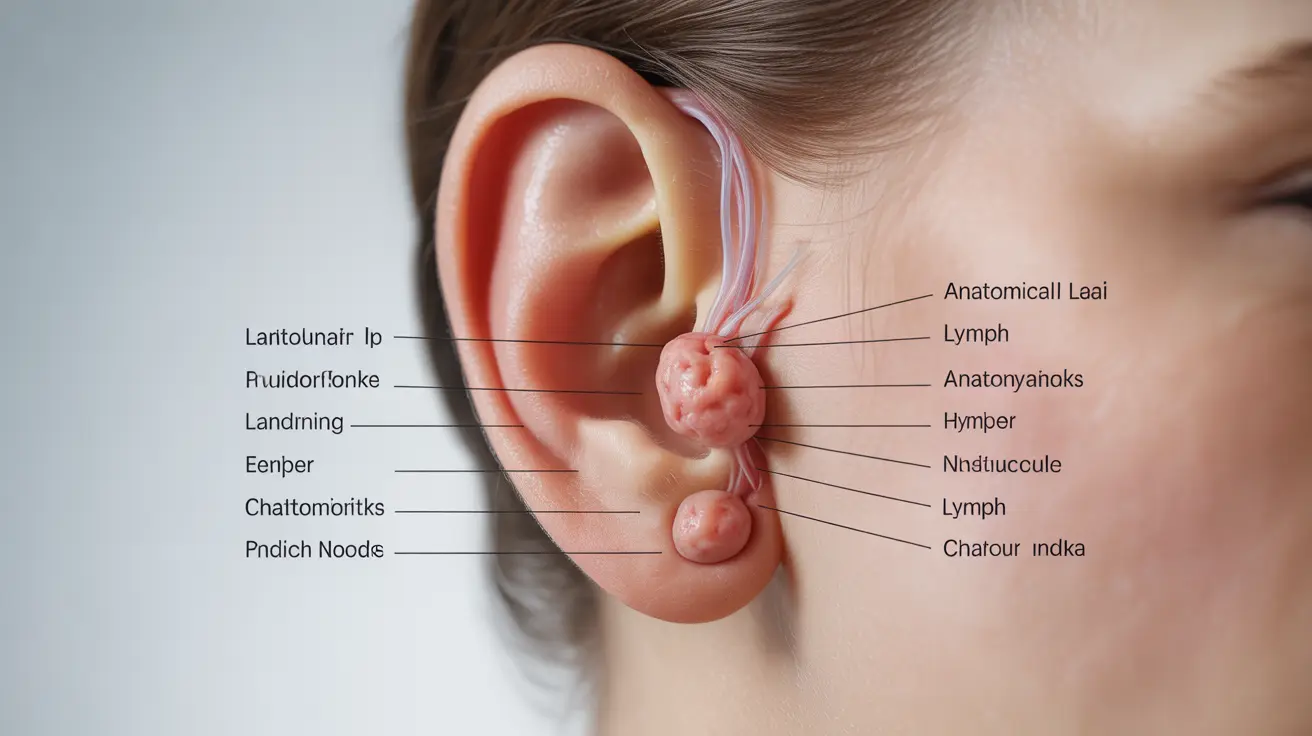Finding a lump in front of your ear can be concerning, but understanding its potential causes and knowing when to seek medical attention can help ease your worry. These lumps, often involving the preauricular lymph nodes, are frequently related to infections or inflammatory conditions that are typically treatable.
This comprehensive guide will explore the various causes of lumps in front of the ear, help you identify warning signs, and explain when you should consult a healthcare provider.
Common Causes of Lumps in Front of the Ear
Several conditions can cause a lump to develop in front of the ear:
Infections
The most common reason for a lump in front of the ear is an infection, which can include:
- Upper respiratory tract infections
- Ear infections
- Skin infections in the surrounding area
- Eye infections
- Dental infections or abscesses
Inflammatory Conditions
Various inflammatory conditions may cause swelling in the preauricular area:
- Autoimmune disorders
- Allergic reactions
- Skin conditions affecting the face or scalp
- Salivary gland inflammation
Signs and Symptoms to Watch For
When you notice a lump in front of your ear, pay attention to these accompanying symptoms:
Common Symptoms
- Tenderness or pain when touching the area
- Warmth or redness of the skin
- Gradual or sudden swelling
- Changes in size throughout the day
Warning Signs
Certain symptoms warrant immediate medical attention:
- Severe pain or rapidly increasing swelling
- Difficulty opening the mouth or swallowing
- Fever above 101°F (38.3°C)
- Hard, fixed, or non-moving lumps
- Lumps that persist for more than two weeks
Diagnosis and Treatment Options
Healthcare providers use several methods to diagnose the cause of a lump in front of the ear:
Diagnostic Procedures
- Physical examination
- Medical history review
- Imaging tests (ultrasound, CT scan, or MRI if needed)
- Blood tests to check for infection or inflammation
- Fine-needle aspiration in certain cases
Treatment Approaches
Treatment varies depending on the underlying cause:
- Antibiotics for bacterial infections
- Anti-inflammatory medications
- Warm compresses for mild cases
- Drainage procedures if necessary
- Treatment of underlying conditions
Prevention and Self-Care
While not all lumps can be prevented, certain measures can reduce your risk:
- Maintain good oral hygiene
- Treat infections promptly
- Keep the facial area clean
- Address allergies and skin conditions
- Stay up-to-date with dental check-ups
Frequently Asked Questions
What are the most common causes of a lump in front of the ear? The most common causes include infections (such as upper respiratory, ear, or dental infections), inflammatory conditions, and swollen lymph nodes responding to nearby infections or inflammation.
How can I tell if a preauricular lump is due to an infection or something more serious like cancer? Infectious lumps typically appear suddenly, are tender to touch, and may be accompanied by fever or other infection symptoms. More serious conditions often present as hard, fixed lumps that don't move and persist for longer periods. Any lump lasting more than two weeks should be evaluated by a healthcare provider.
What symptoms should prompt me to see a doctor about a swollen lymph node in front of my ear? Seek medical attention if you experience severe pain, rapidly increasing swelling, fever above 101°F, difficulty opening your mouth or swallowing, or if the lump persists for more than two weeks.
How is a swollen preauricular lymph node diagnosed and treated? Diagnosis typically involves a physical examination, medical history review, and possibly imaging tests or blood work. Treatment depends on the underlying cause but may include antibiotics, anti-inflammatory medications, or specific treatments for the underlying condition.
Can dental or eye infections cause swelling in the lymph nodes in front of the ear? Yes, both dental and eye infections can cause swelling in the preauricular lymph nodes. These nodes help filter lymph fluid from areas including the teeth, gums, and eyes, so infections in these areas can cause them to become swollen and tender.




